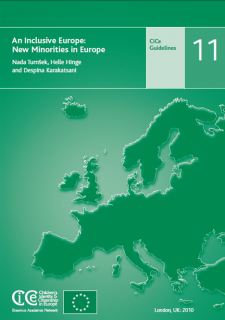
All contemporary European states are multicultural in the sense that their populations include both traditional and new minority groups.
Fuelled in part by political upheaval, economic difference and freedom of movement entailed in growing economic integration in Europe, an increasing number of people have settled, with varying degrees of permanence, in countries other than their country of origin.
The integration of immigrant populations is an important issue of political debate in European countries as they search for appropriate arrangements to facilitate integration while remaining mindful of cultural difference. Although promoting inclusive multiculturalism is seen as an important goal of multiethnic Europe, we are conscious that our histories show that acceptance of diversity has not always been self-evident in policy; and that, policy has often been assimilationist in tone, placing periodic demands on immigrants to give up their traditional lifestyles and adopt the dominant living modes in the society to which they have immigrated. The dilemma is often how best to reach the goal of inclusive multiculturalism.
In this booklet we raise conceptual and policy questions that serve both to illustrate complexity and the importance of context. Rather than advocating any particular policy or practice we provide activities that encourage students to reflect on concepts and policies.
Details
- Authors
- Nada Turnšek, Helle Hinge and Despina Karakatsani - CiCe Network Working Group
- Geographic area
- EU Wide
- Contributor type
- Academics and experts
- Posted by
